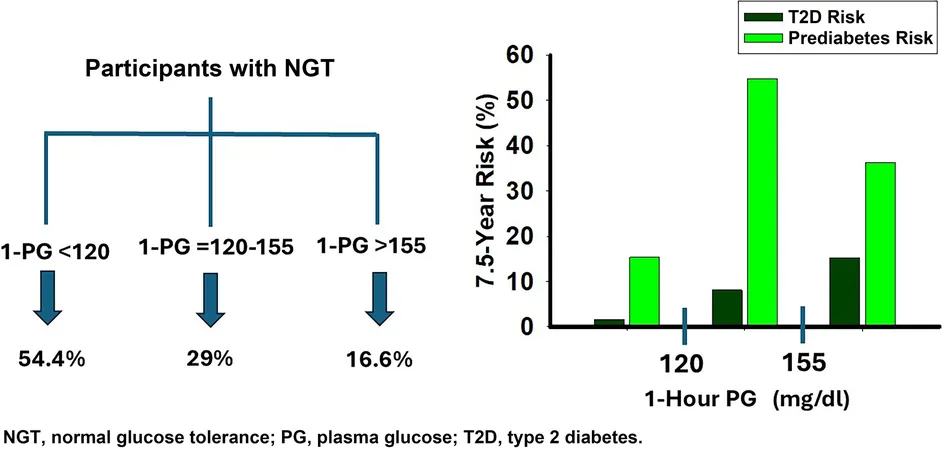
Revolutionary Study Uncovers Stage Before Prediabetes: Are You at Risk?
2025-09-11
Author: Sarah
A groundbreaking study from The University of Texas at San Antonio Health Science Center reveals alarming new insights into the progression of type 2 diabetes—indicating that the changes leading to this chronic illness begin far earlier than previously thought.
Meet 'Pre-Prediabetes': The Hidden Danger!
This first-of-its-kind research, detailed in the journal Diabetes Care, uncovers a new risk category dubbed "pre-prediabetes." Surprisingly, individuals in this stage actually show signs of severe insulin resistance and early beta cell dysfunction, alongside measurable cardiovascular issues, all while maintaining normal glucose tolerance.
Dr. Ralph DeFronzo, a leading figure in the study and chief of the Diabetes Division, emphasizes that diabetes is not a sudden ailment. "It’s not that people just wake up one day with prediabetes or diabetes; it’s a continuous disease process that unfolds over time."
Time to Rethink Diabetes Testing!
Currently, the American Diabetes Association defines diabetes using specific criteria for fasting glucose, oral glucose tolerance tests, and Hemoglobin A1c levels. Unfortunately, these standards often miss at-risk individuals, allowing the disease to progress unchecked.
DeFronzo and his team discovered that monitoring one-hour glucose levels during an oral glucose tolerance test may be a much more effective predictor of future diabetes. Values between 120 and 155 mg/dL alert us to an increased likelihood of developing prediabetes and ultimately type 2 diabetes—years before current testing methods can catch them.
Why Early Intervention is Crucial!
Despite these revelations, the ADA does not currently endorse routine treatments for prediabetes, and options remain limited. While metformin is recommended in some high-risk cases, Dr. DeFronzo now regards it as outdated.
He champions the insulin sensitizer pioglitazone, which astonishingly reduces the progression from prediabetes to diabetes by 75%, eclipsing metformin’s effectiveness. Additionally, new GLP-1 receptor agonists like semaglutide and tirzepatide offer even more promise, boasting an 85% reduction in type 2 diabetes progression rates.
Push for Proactive Health Care!
Dr. DeFronzo advocates for early screening and intervention for high-risk individuals, particularly those with a family history of diabetes or cardiovascular issues. He envisions a paradigm shift in healthcare, where proactive measures are taken to combat insulin resistance and prediabetes long before they develop into diabetes.
With ongoing research and better patient education, the hope is that healthcare providers will incorporate these crucial findings into their practices, especially for at-risk populations. It’s time to act before the silent threat of diabetes takes hold!




 Brasil (PT)
Brasil (PT)
 Canada (EN)
Canada (EN)
 Chile (ES)
Chile (ES)
 Česko (CS)
Česko (CS)
 대한민국 (KO)
대한민국 (KO)
 España (ES)
España (ES)
 France (FR)
France (FR)
 Hong Kong (EN)
Hong Kong (EN)
 Italia (IT)
Italia (IT)
 日本 (JA)
日本 (JA)
 Magyarország (HU)
Magyarország (HU)
 Norge (NO)
Norge (NO)
 Polska (PL)
Polska (PL)
 Schweiz (DE)
Schweiz (DE)
 Singapore (EN)
Singapore (EN)
 Sverige (SV)
Sverige (SV)
 Suomi (FI)
Suomi (FI)
 Türkiye (TR)
Türkiye (TR)
 الإمارات العربية المتحدة (AR)
الإمارات العربية المتحدة (AR)